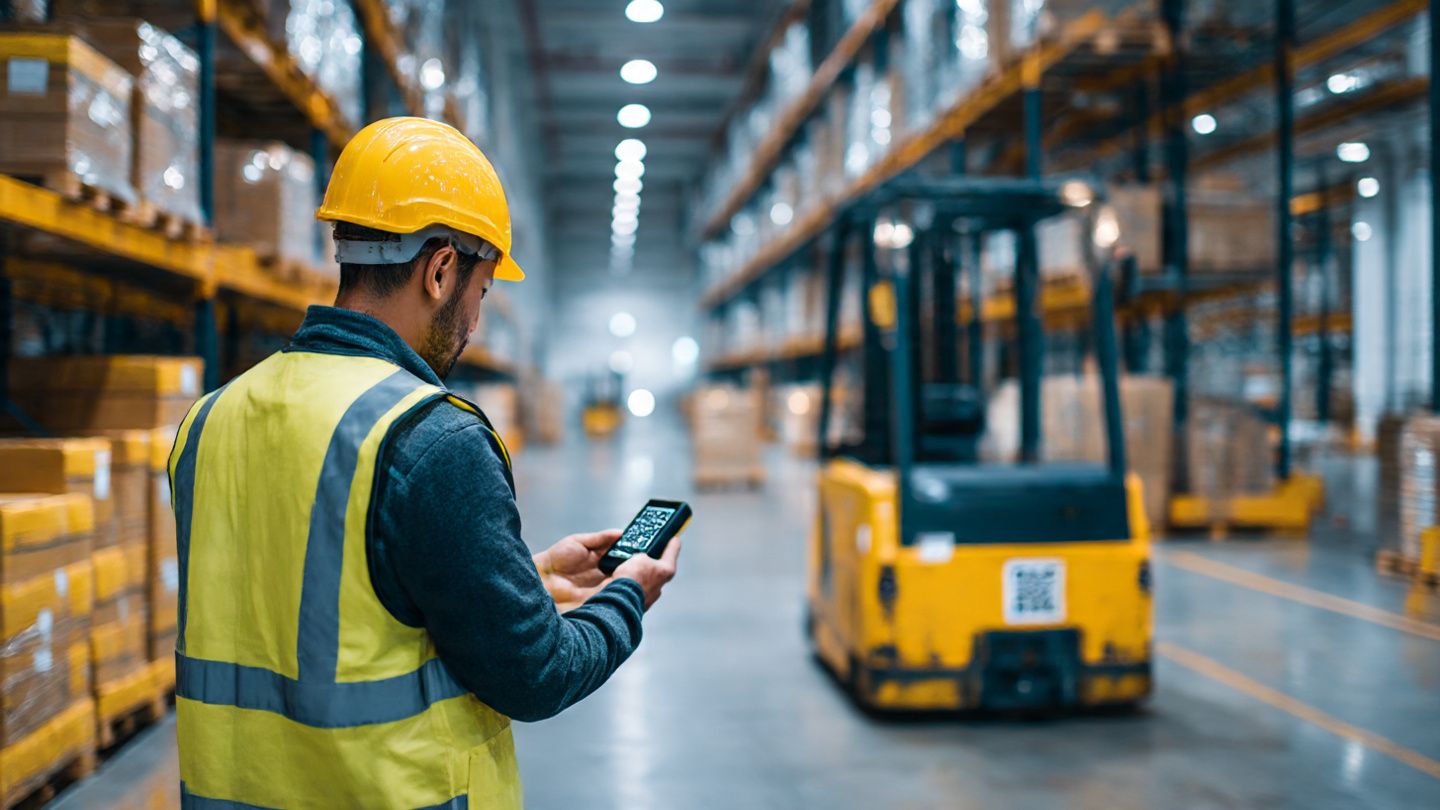The future of logistics and e-commerce relies on seamless, borderless connectivity—and eSIM technology is making that possible. Learn how an eSIM can optimize your international supply chain, power IoT devices, and keep your business connected globally.
Global logistics depends on more than movement—it relies on real-time communication. Explore Yoho Mobile’s business eSIM solutions to ensure your international operations stay connected anywhere.

Why Connectivity Matters in Global Logistics
Global logistics and e-commerce networks operate across complex ecosystems—airports, seaports, distribution centers, and last-mile delivery routes. Each component depends on accurate data flow, making connectivity essential. But traditional SIM cards and regional carriers often struggle with cross-border coverage, downtime, and manual configuration.
That’s where the evolution of what an eSIM card changes the game. An eSIM (embedded SIM) is a reprogrammable chip that allows devices—from smartphones to IoT trackers—to switch between networks digitally. For global logistics companies, this means better control, reduced costs, and uninterrupted service across international routes.
Businesses managing cross-border e-commerce can now use eSIM for business to maintain live communication between warehouses, fleets, and delivery hubs—without replacing SIM cards or paying excessive roaming fees.
The Global Shift Toward Smart Supply Chains
As the demand for real-time visibility grows, eSIM adoption has accelerated across the international supply chain. According to the GSMA, eSIM connections are projected to surpass 2 billion by 2025, largely driven by logistics, IoT, and enterprise mobility.
This shift empowers logistics and e-commerce companies to:
- Monitor shipments in real-time through IoT-enabled tracking.
- Optimize delivery routes using live data from multiple carriers.
- Simplify connectivity across continents with one digital platform.
- Improve sustainability by reducing physical SIM waste.
- Scale operations without the complexity of multi-carrier contracts.
The global logistics connectivity revolution has begun—and eSIMs are at its core.
The Role of eSIM in Cross-Border E-commerce
E-commerce thrives on efficiency. From payment processing to package delivery, every second counts. But connectivity challenges—like network drops, roaming restrictions, and latency—can disrupt real-time coordination between international warehouses and regional distribution hubs.
With a cross-border e-commerce SIM powered by eSIM technology, your operations become frictionless. eSIMs ensure each connected device—whether it’s a handheld scanner in a fulfillment center or a smart label on a shipment—has instant network access in any country.
- For retailers: Enable seamless store-to-warehouse updates with constant connectivity.
- For logistics partners: Reduce delays caused by network gaps in remote or border regions.
- For IoT systems: Support thousands of sensors reporting in real time across multiple countries.
Global eSIM solutions from Yoho Mobile let businesses manage multiple profiles on one dashboard, giving your team complete control over which regions are active and how much data each unit consumes.
Ready to simplify your operations and go borderless? Activate your global business eSIM now and empower your logistics team with reliable, instant connectivity.
How to Deploy eSIM for Business Operations
Implementing eSIM technology across your supply chain doesn’t require complex infrastructure. You can roll it out in a few straightforward steps to ensure your devices and teams stay online worldwide.
-
Assess your connectivity needs
Start by identifying key touchpoints in your logistics network—vehicles, warehouses, customs points, and customer service hubs. Each of these may require a different data capacity or network configuration. -
Select your eSIM plan
Choose an eSIM for business that supports multi-region coverage and offers flexible data plans. With Yoho Mobile, you can tailor plans based on volume, device type, or country. Visit how Yoho Mobile works to understand how easy setup can be. -
Install and activate
eSIM installation is digital. Devices scan a QR code or load a remote SIM profile over the air. This eliminates the need for physical swaps when moving between countries. -
Integrate with IoT systems
IoT eSIMs can automatically sync with telematics, GPS, and warehouse management software, providing unified data analytics and smarter decision-making. -
Monitor and manage remotely
Use your Yoho Mobile business dashboard to track data usage, monitor device activity, and switch carriers instantly—all from one platform.
Smart Example: From Factory to Final Mile
Imagine your supply chain runs from Shenzhen to Rotterdam. Each step—factory output, shipping updates, customs clearance, and last-mile delivery—relies on IoT sensors sending live data. With a global eSIM, your devices maintain network continuity through Asia, Europe, and beyond, automatically switching to the best local carrier.
This automation reduces downtime, improves data accuracy, and lowers operational costs compared to traditional SIM cards or roaming solutions. The result: faster delivery, happier customers, and streamlined international logistics.
Benefits of eSIM in International Supply Chain Management
The international supply chain is only as strong as its connectivity. Here’s how adopting eSIMs can revolutionize your logistics and e-commerce operations:
- Unified connectivity — one digital SIM for all global regions.
- Real-time tracking — IoT-enabled sensors with 24/7 data flow.
- Reduced overhead — no physical logistics for SIM card handling.
- Faster scalability — deploy thousands of devices remotely.
- Enhanced security — eSIMs use advanced encryption and carrier-level authentication.
Businesses operating fleets, drones, and automated warehouses can particularly benefit from IoT eSIM integration, enabling full transparency and predictive maintenance without manual intervention.
The Future: eSIM-Driven IoT in Logistics
IoT and eSIM technologies are converging to redefine how goods move across the world. With IoT eSIMs, each pallet, vehicle, and delivery drone can communicate in real-time, creating an intelligent web of connected logistics.
eSIM-based IoT solutions reduce latency and increase data reliability for mission-critical operations. This means fewer delays, better tracking accuracy, and a more resilient global logistics connectivity ecosystem.
In the next few years, cross-border e-commerce companies adopting eSIMs will see:
- Higher delivery accuracy and fewer shipping errors.
- Optimized routes through AI-driven connectivity analytics.
- Seamless coordination between international partners.
- Greener operations through digital SIM lifecycle management.

FAQs About eSIM for Logistics and E-commerce
1. How does an eSIM improve logistics efficiency?
eSIMs eliminate connectivity gaps across borders, ensuring devices stay online regardless of country or carrier. This means faster updates, fewer errors, and smoother coordination between teams.
2. Can I manage multiple eSIM devices remotely?
Yes. Yoho Mobile’s enterprise dashboard allows remote activation, deactivation, and data management for all your devices in one place.
3. Is eSIM technology compatible with existing IoT devices?
Most modern IoT devices and logistics trackers now support eSIM integration. Check your device manufacturer’s specifications or consult the GSMA database for compatibility.
4. What are the security benefits of using eSIM?
eSIMs include built-in encryption, carrier authentication, and remote management features, reducing risks from SIM theft or physical tampering.
5. Can small businesses use eSIM for international e-commerce?
Absolutely. Even small e-commerce stores can use global eSIM connectivity to manage overseas warehouses, shipment tracking, and customer support networks effectively.
Conclusion
As e-commerce and logistics continue to expand across borders, dependable connectivity is no longer optional—it’s foundational. eSIM technology empowers global businesses to operate efficiently, track assets in real time, and stay agile in competitive markets. With Yoho Mobile’s global eSIM solutions, your supply chain stays strong, smart, and connected—everywhere.
Looking to future-proof your logistics network? Get your business eSIM plan today and lead the next wave of connected commerce.
